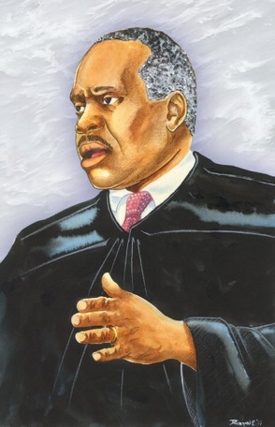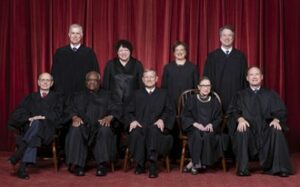
Justice Clarence Thomas
A ruling by the U.S. Supreme Court over an Indiana abortion law afforded one of the justices the opportunity to remind his colleagues about the sordid history of Planned Parenthood.
The nation’s highest court was tasked with reviewing Indiana’s law that requires medical facilities to bury or cremate the remains of aborted babies. The justices upheld that law, overturning a 7th Circuit decision, but the court also refused to review a portion of the same law that bans abortions based on sex, race, and disability.
Justice Clarence Thomas concurred with the court’s decision to turn down a review but he used the court case to pen a 20-page opinion advising the justices that the issue of eugenics must be addressed in the future.
“Given the potential for abortion to become a tool of eugenic manipulation,” Thomas wrote, “the Court will soon need to confront the constitutionality of laws like Indiana’s.”
 Thomas then went on to point out that Planned Parenthood founder Margaret Sanger (pictured left) linked birth control and eugenics, and her successor Alan Guttmacher “endorsed abortion for eugenic reasons and promoted it as a means of controlling the population and improving its quality.”
Thomas then went on to point out that Planned Parenthood founder Margaret Sanger (pictured left) linked birth control and eugenics, and her successor Alan Guttmacher “endorsed abortion for eugenic reasons and promoted it as a means of controlling the population and improving its quality.”
The purpose of the history lesson, according to Thomas, was to warn the Court that if it finds the constitutional right to abort a child based on race, sex, or disability, then the justices would “constitutionalize” the views of the eugenics movement and its proponents
Dr. Alveda King, who heads Civil Rights for the Unborn, says it’s true that Sanger acted as a consultant for none other than the Ku Klux Klan.
“Advising them on how to control a Negro population,” King says. “And that is documented.”
Regarding Justice Thomas’ written opinion, King predicts that it will be read and considered by judges in the future.
Written by Charlie Butts for One News Now ~ May 30, 2019.

 FAIR USE NOTICE:
FAIR USE NOTICE: